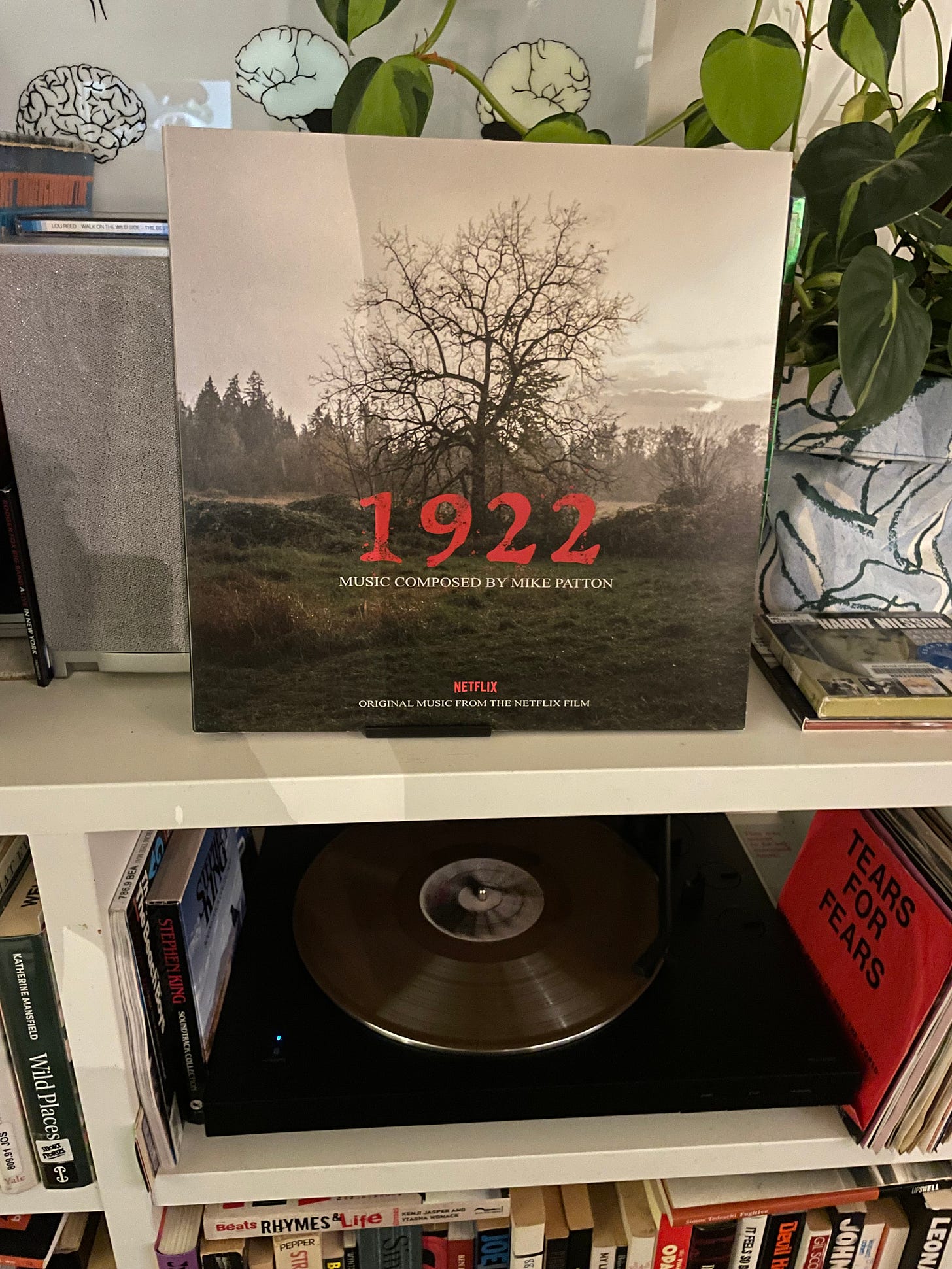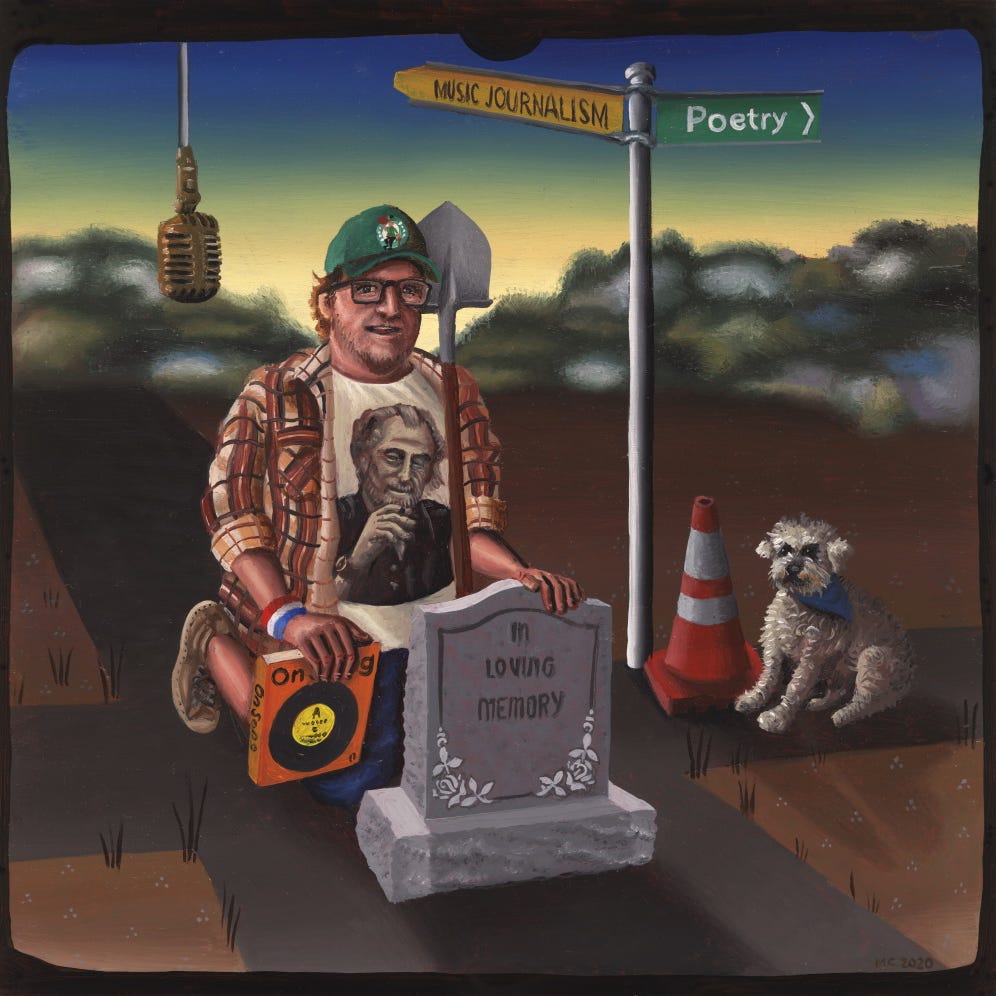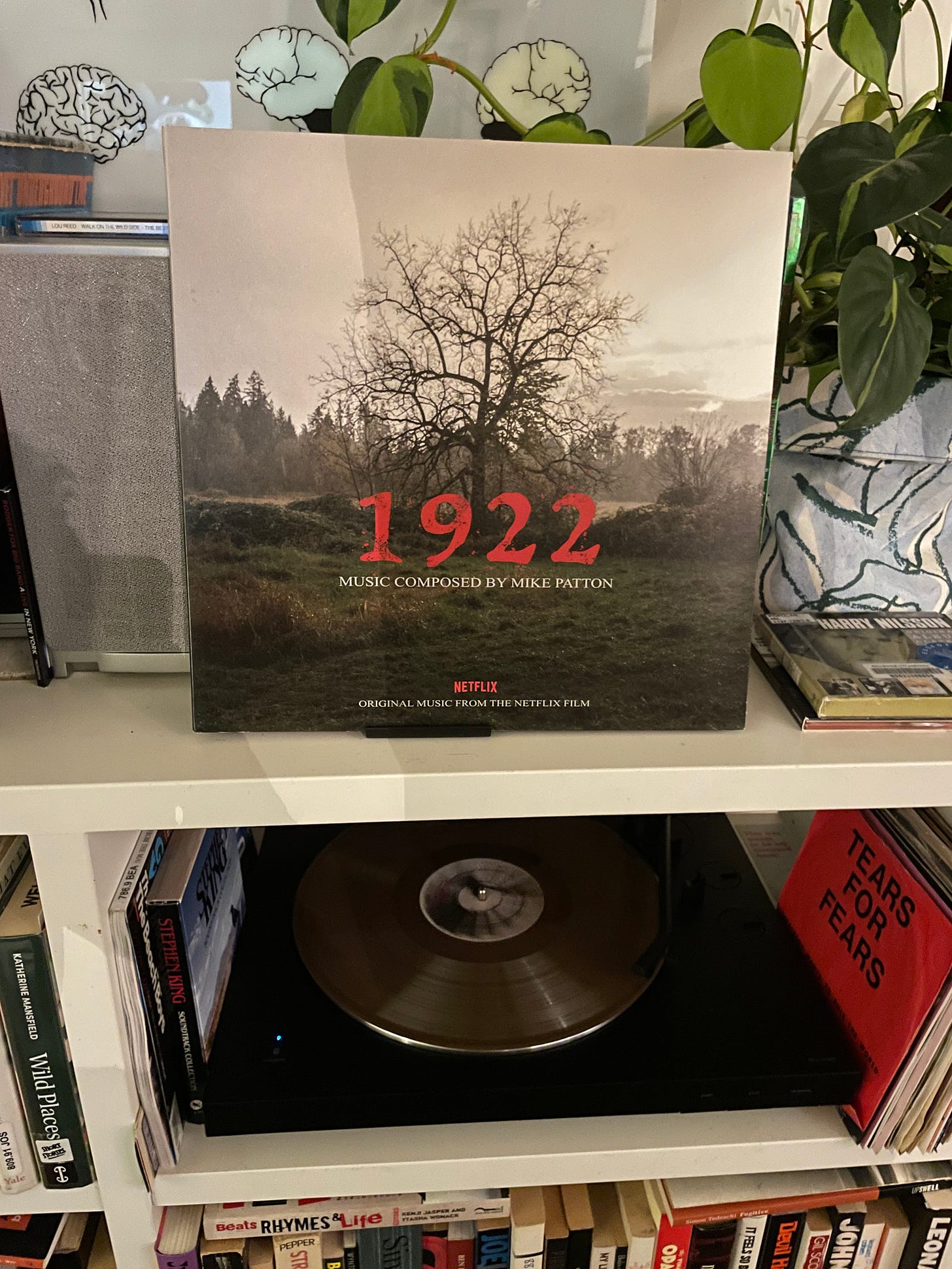What A Good Score! – #38: 1922 by Mike Patton
What A Good Score is a new series here at Off The Tracks – looking at movie soundtracks, the good, the band and the astounding…
I’m not across every single thing Mike Patton has done, because that would require a receptionist or PA. But I am a fan, and his contributions to Mr Bungle and Faith No More are never far from my mind. I’m a huge fan of many of his other side projects (Tomahawk) and I love his band Fantômas; perhaps it’s with Fantômas (and Bungle) where we most see and feel and hear the Horror Soundtrack aesthetic — Morricone and Pino Donaggio and Goblin and John Carpenter and the like. All swirling in there.
Patton had made solo records under his own under before he went out as a soundtrack composer. But those were more about the various ways he can utilise his voice. He’s continued to do voice work for films too, using effects and his phenomenal range and approach to make creature sounds and to contribute to moods and soundscapes. But I was first aware of his soundtrack composition with the mid-00s release of A Perfect Place, a soundtrack album to a 30-minute short film (you bought the album and got a copy of the movie on DVD; I regret not holding onto that — must find it again one day).
He’d really progressed by the time of The Place Beyond The Pines. That score feels like the work of Abel Korzeniowski, with a little Morricone layered in for good measure.
And so it’s that energy — and ability — that Patton carried over to his score for 1922. The film is strong. I like it. And its source novella (Stephen King, from his tremendous collection, Full Dark, No Stars) is also very good.
Patton’s score is all at once a part of the mood of the film and also just something you can feel as much as hear. It clings to the walls. It pervades. It is ominous and does its great job of foreshadowing. But it’s also something you can listen to out in the world on its own — and not just because you’re a Mike Patton fan.
It feels like a new level of sophistication for him as composer. His voice isn’t really there on this one either — it’s about the actual music rather than layers of voice manipulation.
The film’s rats and tension and darkness and grim resolution are all conjured and conveyed with the music; all carried across at various times without ever feeling like it’s only the music doing the work of course. The film is a brilliant realisation of the novella’s themes and action; of its brooding and its particular depression. But I found that in the music also. A perfect accompaniment. A perfect realisation of the essence that needed to be conveyed.
Give it a listen. It’s uneasy listening (of course!) It’s unsettlingly. But beautifully so.







